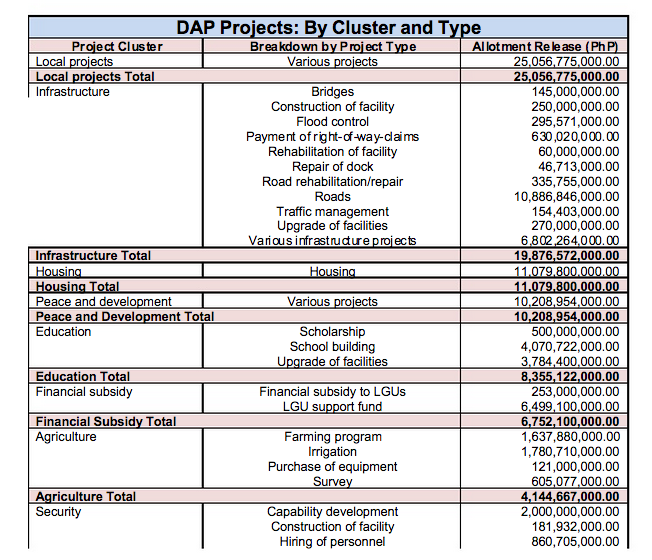Updates on the Freedom of Information Bill
The Right to Know. Right Now! Coalition, a network of more than 100 organizations from various sectors that has long been pushing for the passage of the Freedom of Information Act shares some updates on the status of the Freedom of Information bill.
> There are 15 FOI bills filed and referred to the House Committee on Public Information chaired by Rep. Ben Evardone, and 12 FOI bills filed and referred to the Senate Committee on Public Information chaired by Senator Honasan. Most of the bills fully adopt the bicam version that failed to pass in the last Congress, or earlier versions thereof. There are only a few versions that introduce distinct features. Among the notable ones are the bills of Rep. Karlo Nograles, which has a provision for non-retroactivity, that of Rep Romualdo (which seeks to cover not just government but private bodies as well and provides broad expansion of exceptions), and that of Rep. Rodolfo Antonino, which inserts a provision on right of reply. On the other hand, Bayan Muna filed their old bill, which had no exceptions.
> The House committee has conducted one committee hearing (23 Nov 2010) and one TWG meeting on 3 Feb 2011. On the basis of these, Rep Erin Tanada submitted to the committee a draft consolidated version sometime in Feb 2011. Consideration of this proposed consolidated bill, however, was deferred when President Aquino created a study group to review the FOI bill and address his remaining concerns.
> The Senate committee has held two committee hearings, the first on 14 October 2010, and the second on 18 August 2011. Senator Honasan, even prior to the endorsement of the bill by President Aquino, has already given his commitment to push the legislation in committee and in plenary.
> After a long wait, Malacanang finally announced on 4 January this year that the President has approved the proposed amendments by the study group, and given the go-signal to push ahead with the legislation. On 2 February, during his speech at the Manila Bulletin anniversary, President Aquino announced that they have transmitted to Congress the FOI with their proposed amendments.
> The proposed amendments of Malacanang include the following:
a) The addition of the word “national security” in exception 1.
b) The insertion of a new exception affording protection to the President’s deliberative process (executive privilege)
c) The re-categorization of a number of punishable acts from criminal to administrative offenses
d) The introduction of the defense of good faith
e) The expansion of information for mandatory disclosure through website posting without need of request, most notable of which is the SALNsThe prior proposal to create an independent commission for appeals purposes was withdrawn.
The proposed amendments also included a number of counterbalancing safeguard measures to abuse of exceptions, including the provisions for strict construction of the exceptions as well as the proscription against the use of exception to cover-up crime, wrong-doing, or graft and corruption.
> Based on the original proposed consolidated bill, the Malacanang amendments, and a few more improvements, Rep Erin Tanada has submitted to the committee a revised proposed substitute/consolidated bill. On the part of he Senate, the Office of Senator Honasan is likewise finalizing their proposed substitute bill.
> The House Committee on Public Information has set a hearing on Tuesday, 13 March, 1:30 pm at Conference rooms 3 and 4, Mitra Building of House of Reps, to deliberate on the proposed substitute measure.
> Overall, we submit that the proposed consolidated bill, if passed will mean substantial gains to all citizens.
First, it will impose a uniform and speedy procedure for people’s access to information, thereby removing the wide room for administrative avoidance of disclosing information under current laws.
Second, it frees the broadest amount of non-sensitive information to easy and effective access for the everyday needs of citizens in availing of government services.
Third, for information that may be regarded as sensitive, and for which government presently invokes wide discretion in withholding, the bill now lays down clear limits on exceptions. In addition to defining the limits of exceptions, the bill reaffirms existing and adds new safeguards against abuse of exceptions. The government has the burden of proving an exception, which must be strictly construed, and may not be used to cover-up crime, wrongdoing, graft, or corruption.
Fourth, it identifies a list of documents of high public interest that are required to be disclosed without need of request, including SALNs that have otherwise been very difficult to access.
Fifth, it introduces basic standards on government’s record keeping and introduces various mechanisms to facilitate easy access of information.
Sixth, it introduces a number of better remedies to denial of access and violation of our right to information, including the imposition of substantial administrative and criminal liability.
To be sure, there will be continuing challenges that will have to be fought if the bill in its present form is passed. One of these will be the continuing struggle against the abuse of the broadening of the national security exception. But on balance, the bill represents a significant, progressive advance of our right to information, and fares very well in terms of international standards when ranged against the close to 90 FOI laws around the world.
> With respect to being able to finally get the bill passed, we are adopting a stance of guarded optimism. We go by benchmarks. The endorsement by the President after a long struggle is a significant gain. The next hurdle will be the committee approval, then plenary action and approval on 2nd and 3rd reading, then bicameral conference, then ratification by both houses, before it gets to the President again for his signing into law.
> It is clear that we are still far from the finish line, and the window of opportunity before the next elections is closing fast. But this remains one of the better shots we have at finally getting this bill to become law.
> The first litmus test for us is the House committee hearing on March 13. We anticipate further attempts to delay, such as through monkey-wrench amendment like the right of reply.
> We will continue to push on; but more than ever, we appeal for your support. Unlike other issues where the media is called upon to take a neutral and independent position, we think that the freedom of information, like freedom of the press and expression, is a matter where the media can, and should take a partisan stand.
You might also want to see the following:
(a) The proposed substitute FOI bill that will be taken up by the House Committee on Public Information on Tuesday, March 13, 1:30 pm at conference rooms 3 and 4, Mitra building.
(b) a matrix comparing the national security and deliberative process exceptions of the proposed substitute bill with leading FOI laws.
Revised Consolidated FOI – Committee Transmittal – 5 March 2012


